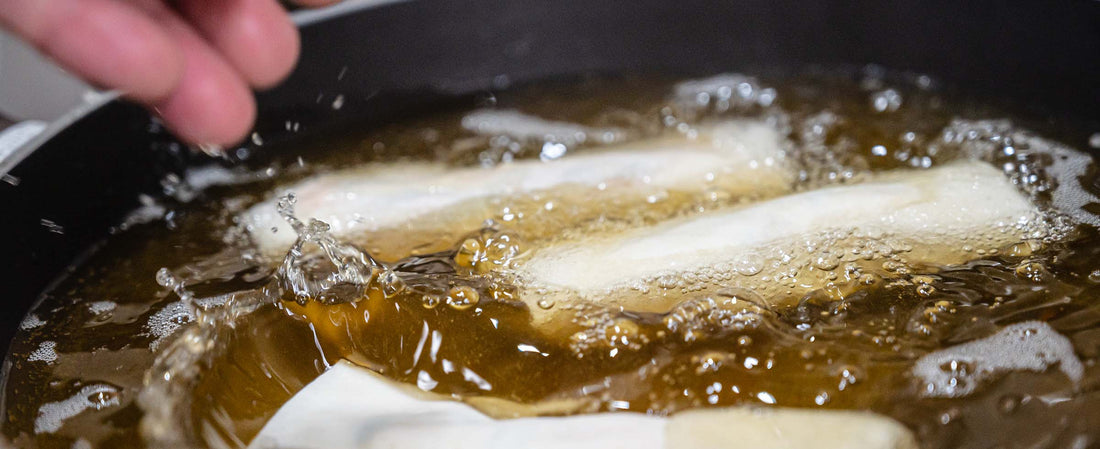
How to Keep Oil from Foaming?
Share
A foam is a collection of tiny air bubbles on the oil's surface. But why is this such a big deal? Because many consumers wrongly believe that foaming in oil is caused by adulteration or is a symptom of low-quality oil. As a result, brands are compelled to utilise anti-foaming compounds, which, when heated to high temperatures, result in developing dangerous substances that might even cause cancer. As a result, it is advised to use oil without an anti-foaming agent.
Here are some things to remember when using natural oil to avoid foaming:
- Rinse your frying vessel well before using it: Old oil and bits of food can linger in it, leading to smokey, foamy oil. Before you start a fresh batch, give your frying vessel a good rinse with hot water to clear out any unwanted leftovers.
- Rinse your frying vessels with hot water as a final step: Leftover soap and detergent can react with your hot oil and cause it to foam up (plus, it makes the oil taste pretty bad). To prevent that from happening, give a final rinse to clean out your frying vessels with hot water.
- Dry your fry vessel well: Too much water inside your frying vessel could lead to bubbling or foaming oil. Before using your deep fryer, ensure the inside is clean and dry to prevent any issues as you fry.
- Pat the food dry before you fry it: If you aren’t battering your food, use a paper towel to dab off any excess water. Frying food with water on it can make it foam up and cause the oil to bubble and spit, too.
- Avoid overheating the oil: Once your oil reaches the perfect temperature for frying—usually around 375 °F (191 °C)—keep the heat steady or turn it down just a touch. If the oil gets too hot, it could start to bubble and foam, so you should try to keep the temperature as steady as possible.
- Skim out any particles in between batches: If you’re frying a lot of food and you notice a lot of chunks getting left behind, they could be causing the foam on top of your oil. Use a slotted spoon to scoop out the big pieces of batter, then throw them away.
Oil foaming can be caused by any of these factors and is often a combination of more than one issue. Foaming in oil is a common problem in frying food, but it can lead to misunderstandings about the quality of the oil. Following the tips outlined above can help prevent oil foaming, making your frying experience safer and more enjoyable. In addition, you can ensure that your food is cooked evenly and that the oil stays free from unwanted bubbles.



















 You saved ₹-48 on this order
You saved ₹-48 on this order